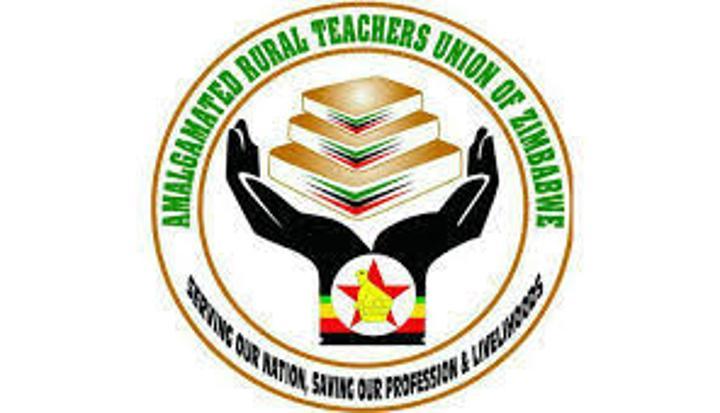Africa-Press – Zimbabwe. AT least 1 200 teachers are leaving the profession each month amid revelations that most of them are suffering from burnout due to various challenges including heavy workloads, NewsDay reports.
Composite classes resulting in a high teacher-to-learner ratio are cited as one of the reasons.
The revelations were made by the Amalgamated Rural Teachers Union of Zimbabwe (Artuz) in a communiqué released after an online general meeting held on August 17.
Artuz said low morale was causing 1 260 teachers to leave the profession each month amid a sustained recruitment freeze.
The union also revealed that the Basic Education Assistance Module (Beam) has failed hence learners are dropping out of school, leading to an increase in child marriages, drug abuse and child labour.
“Transfers are being handled corruptly and members are being denied their right to vacation leave,” the communique read.
“Salaries remain low and employers are ignoring calls for better working conditions.
“Teachers’ small salaries are subject to deductions through the fraudulent GEMS [Government Employees Mutual Savings] scheme, which then denies those teachers loans.
“Working and living conditions for teachers are extremely difficult, with uninhabitable houses, transportation problems and a lack of access to clean water, amenities, and other essential services.
“The challenge of high workloads from composite classes and high teacher-to-learner ratios continue.
“The employer unilaterally reduced indefinite sick leave from 90 days to 45 days.
“The retirement age of 70 is considered punitive due to the unbearable working conditions and low life expectancy.
“The gazetted Public Service Act does not provide for the right to strike, engage in collective bargaining or receive absolute paid maternity leave.”
The union reiterated its demands for a minimum salary of US$1 260, restoration of vacation leave, reversal of reduced sick leave and a permissible retirement age of 55, down from 70.
“On education access, more than 80% of rural schools lack electricity and internet, while many learners are still being taught under trees with the Beam funding model collapsing, resulting in rising dropout rates, which the union links to increased child marriages, drug abuse and child labour,” the Artuz said.
The union said given the suspension of the feeding programme, unavailability of sanitary pads and that pregnant girls are denied access to education, there was need to revamp the education system.
“Economically, the union blames corruption, unregulated mining and neoliberal economic policies for the collapse of social services and rising unemployment,” the union said.
“It calls for devolved democratic socialism, local economic development initiatives and minimum annual funding of US$1 million for each local authority ward.”
Artuz also criticised the government’s handling of its official complaint to the International Labour Organisation and rejected the State-appointed conciliators.
“Politically concerns about a shrinking democratic space, the potential for an unconstitutional presidential term extension and the disintegration of Zimbabwe’s opposition movement, created a vacuum in holding the government accountable.
“The union calls for the formation of a National Transitional Authority to restore democratic norms,” it said.
Despite what it describes as State persecution, Artuz reported steady membership growth and vowed to continue engaging international organisations to defend workers’ rights and rebuild Zimbabwe’s education system.
Primary and Secondary Education ministry spokesperson Taungana Ndoro said, while the government maintained an open-door policy for constructive engagement with all stakeholders operating within their mandate to advance education, “it should be stated that the document in question regrettably veers into extensive political terrain and matters far beyond the remit of a teachers’ union.”
“The ministry will not engage with the litany of extraneous political and global issues raised, which serve only to obfuscate the discourse on education,” Ndoro said.
“Our focus remains solely on matters pertaining to the delivery of quality education in Zimbabwe.
“The figure of 1 260 teachers resigning monthly is dismissed as a gross and irresponsible exaggeration not supported by official government data.
“On the contrary, we have ten-fold 1 260 teachers aspiring to join the public service under the ministry each month.
“The claim that over 80% of schools lack internet access is false. Official data confirms that 52,49% of secondary schools and 39,99% of primary schools have internet access.”
Ndoro said it was critical to note that the level of connectivity within Zimbabwean schools exceeded the national internet penetration rate, demonstrating government’s concerted effort to prioritise digital access in educational institutions.
“The school feeding programme has not been stopped. It continues unabated under the Home-Grown School Feeding Programme model, which is designed to be sustainable and supported by local communities,” he said.
“The assertion that pregnant girls are being denied education is misleading and contradicts the law.
“The government of Zimbabwe, through the Education Act, explicitly protects the right of pregnant girls to remain in and return to formal education.”
Ndoro added that the ministry was committed to upholding this law and ensuring an inclusive environment for all learners.
“The Ministry of Primary and Secondary Education reassures the nation of its unwavering commitment to the continuous provision of quality, equitable and inclusive education for all Zimbabweans,” he said.
“Our focus remains on implementing the Heritage-Based Education curriculum, improving infrastructure and supporting our dedicated teachers within the available national resources.”
For More News And Analysis About Zimbabwe Follow Africa-Press






